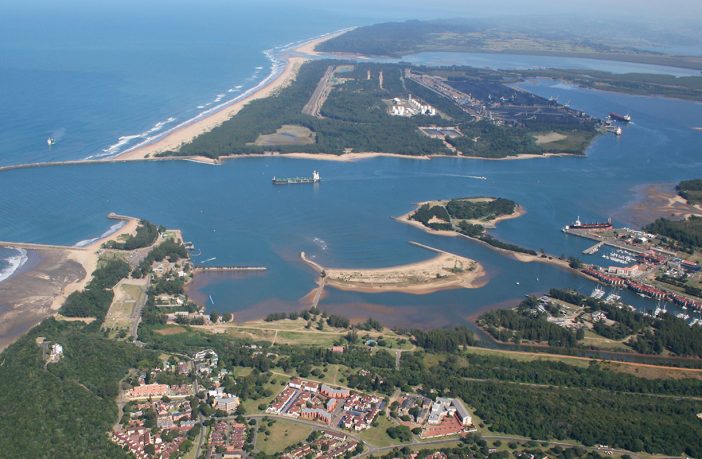- In light of the serious climate change impacts that the project will have and the absence of any assessment of these impacts, environmental justice groups groundWork (gW) and the South Durban Community Environmental Alliance(SDCEA) – represented by the Centre for Environmental Rights (CER) – are challenging the amendment of an environmental authorisation for a gas to power plant in the Richards Bay Industrial Development Zone (IDZ).
Environmental justice groups gW and SDCEA, represented by CER, have approached the Pretoria High Court to challenge the reissued environmental authorisation granted to another proposed gas to power station in the Richards Bay IDZ, Richards Bay Gas to Power 2 (RB2).
This is a 400-MW gas to power plant which received an environmental authorisation in 2016 for a closed cycle gas turbine with a condition that the activity commence within five years of authorisation. Dormant for years, the project resurfaced in December 2020 with an application to amend the timeline, the technology, and the fuel use of the plant – through an environmental authorisation amendment process.
This new court challenge comes in the wake of last month’s announcement that gW and SDCEA, supported by activist organisation Natural Justice and represented by attorneys Cullinan and Associates, have received a court date for the landmark litigation launched in 2021 against the environmental approval of the proposed 3000-MW Eskom gas-to-power station, the first challenge of its kind in South Africa. Read more
The latest challenge calls on government to take into account scientific evidence of greenhouse gas emissions released during the life cycle of gas as a fossil fuel, and to recognise the serious potential climate change impacts of the RB2 project.
Avena Jacklin, groundWork’s Climate and Energy Justice Campaign Manager, says that the organisation has, through objections and appeals, emphasised the urgent need to comprehensively assess the climate impacts that such a project will have.
“We have repeatedly highlighted to the project proponent and the Department of Forestry, Fisheries and the Environment (DFFE) that gas contributes to climate change as much as coal (and more than coal over a 20-year period), and should therefore not be considered a clean or sustainable fossil fuel or electricity source. Natural gas is mostly methane, a potent greenhouse gas that traps 86 times as much heat as CO2 over a 20-year period – this is now, in 2022, an established scientific and statistical fact.”
According to SDCEA, civil society has repeatedly been let down by the Department, which does not stand up to the energy sector and their emission intensive activities.
“Severe and extreme weather events are becoming more frequent and more extreme as a result of climate change. The heavy-rain events that have caused such destruction in KZN over the last two weeks can be expected to recur in the future and with increasing frequency. We want to see the Department entrusted with and mandated to give effect to the Section 24 Constitutional environmental right, apply its mind to applications where climate impacts are caused or exacerbated,” says SDCEA Co-ordinator Desmond D’Sa.
The groups have now approached the Pretoria High Court to review the Minister of the Environment’s refusal of certain grounds of appeal brought in 2021, given that the Environmental Impact Regulations, which govern the amendment application under review, call for “an assessment of all impacts related to the proposed change, advantages and disadvantages associated with the proposed change; and measures to ensure avoidance, management and mitigation of impacts associated with such proposed change …” to be included in a report. In this instance, the proposed changes to the gas to power plant bring about climate impacts.
To achieve the purpose of the EIA Regulations, the assessment of “all impacts”, “advantages and disadvantages” must consider the circumstances at the time of the amendment application, including environmental, policy, and legal developments that disfavour the previously authorised project.
This challenge joins multiple other objections to the gas port (as proposed by the gas industry) at the Richards Bay Industrial Development Zone and port in KwaZulu-Natal.
Parties have 15 days from 25 April 2022 to oppose the case and provide the records that were before the Minister when she made her decision.
Author: Bryan Groenendaal
Source: Centre for Environmental Rights











